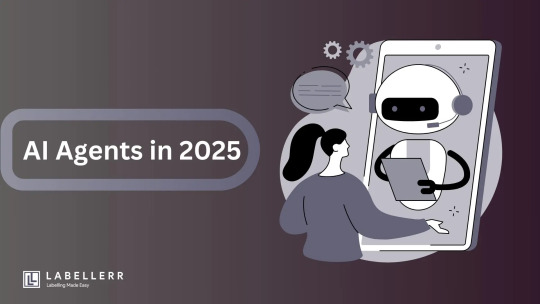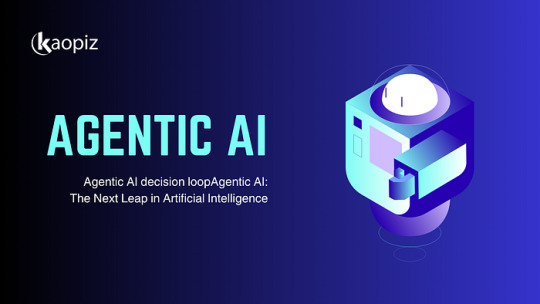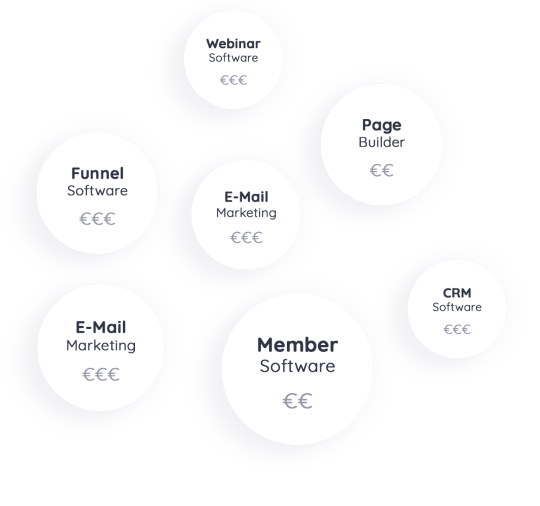#software engineering agent
Explore tagged Tumblr posts
Text
OpenAI Releases Codex: A Software Agent that Operates in the Cloud and Can Do Many Tasks in Parallel
OpenAI has released a research preview of Codex, a cloud-based software engineering agent that's not just another code completion tool. Codex is a cloud-based software-engineering agent that turns on isolated sandboxes, pulls your repo, and chips away at features, bug fixes, test suites, and even pull-request boilerplates—often in parallel.
What is OpenAI Codex? 📌
→ Cloud-based software engineering agent
→ Can write features, answer codebase questions, run tests, and propose Pull Requests for review
→ Each task runs in its own isolated cloud environment
→ Provides detailed terminal logs, test outputs, and citations
→ Users can create AGENTS.MD files in their repository to instruct Codex on project-specific commands, testing procedures, and coding standards
→ Powered by codex-1
How to use Codex: 📌
→ Users can access Codex through the ChatGPT sidebar
→ Assign coding tasks by typing a prompt
→ Each request is handled independently
→ Codex can read and edit files and run commands like test suites, linters, and type checkers
→ Task completion generally takes between one and thirty minutes
Once done, Codex runs its changes within its sandboxed environment, which users can then review, ask for more changes, open a GitHub PR, or pull the changes into their local setup.
↗️ Full Read: https://aiagent.marktechpost.com/post/openai-releases-codex-a-software-agent-that-operates-in-the-cloud-and-can-do-many-tasks-in-parallel
Codex: Availability 📌
Codex is currently rolling out to ChatGPT Pro, Enterprise, and Team users, with access for Plus and Edu users planned to come soon.

#agentic ai#ai#ai agency#ai agents#artifical intelligence#chatgpt#codex#ChatGPT Codex#OpenAI Codex#coding#programming#engineering#software#machine learning#software engineering agent#software engineering#coding agent
5 notes
·
View notes
Text








Turbo Overkill
#pc gaming#turbo overkill#fps#civvie 11#cyberpunk#sewer count#hover cars#dystopia#unity engine#raptor#monster bash#apogee software#secret agent
41 notes
·
View notes
Text
little bit insane over mithan again bc it IS just emotionally vulnerable guy x toxic masculinity girl which is like. THEE archetype everrrrrrrr to meeeeeeee
#thetalogs#its just. ouhhhhhh#ethan being a software engineer and an artist who does the cheesiest shit ever#and then mia is a trained agent who only cares about her family. god#I LIKE THEM THE NORMAL AMOUNT#they both have anger issues though. thats their shared trait#TJE INTRO SEQUENCE IN VILLAGE!!!!!!!!! ETHAN TRYING TO TALK ABOUT THEIR ISSUES!!!!!!!!!#MIRANDA WAS ONLY MIA FOR A COUPLE OF DAYS SO SHE COULDNT HAVE BEEN ACTING OOC BY FIGHTING ABT IT#AUHHHHHHHHH
4 notes
·
View notes
Text
Mastering the Deployment of Autonomous AI Agents: Overcoming Real-World Challenges for Scalable, Reliable Systems in 2025
Introduction
Autonomous AI agents, systems capable of independent reasoning, decision-making, and action execution, are rapidly transitioning from experimental prototypes into critical components reshaping enterprise software in 2025. These agentic AI systems, often powered by generative AI and large language models (LLMs), promise to revolutionize domains ranging from customer engagement to predictive maintenance and complex workflow automation.
Yet, the journey from promising demos to robust, scalable production deployments is fraught with technical, operational, and organizational challenges. For professionals seeking to deepen expertise in this domain, Agentic AI courses in India and best Agentic AI courses globally provide essential foundations and practical skills. These courses empower software engineers and technology leaders to master the deployment of autonomous AI agents effectively.
This article provides a deep dive into the realities of scaling autonomous AI agents in enterprise environments. Leveraging the latest research, frameworks, and practical case studies, we explore the evolution of agentic AI, state-of-the-art tools, software engineering best practices, ethical and compliance imperatives, and the critical role of cross-functional collaboration. Our goal is to equip AI practitioners, software engineers, architects, and technology leaders with actionable insights to navigate this complex landscape successfully.

Evolution and Current State of Agentic AI
Over the past decade, AI has evolved from rule-based systems and narrowly specialized models to sophisticated agentic systems that operate autonomously and collaboratively. Advances in deep learning, reinforcement learning, and the rise of LLMs have empowered today’s agents to process multimodal data, text, images, video, and execute complex, multi-step tasks.
Modern agentic AI architectures embrace modularity and composability: individual agents specialize in domain-specific skills and are orchestrated by higher-level models that coordinate workflows, manage data flow, and optimize task execution. This shift mirrors broader software engineering trends favoring microservices and modular design, enabling enterprises to tackle intricate problems through integrated AI teams rather than isolated models.
Leading frameworks such as LangChain, Microsoft’s Project Bonsai, and OpenAI’s function calling APIs provide the scaffolding for building and orchestrating these multi-agent ecosystems, supporting multilingual and multimodal data handling essential for global enterprises. For software engineers transitioning to this domain, enrolling in Agentic AI Professional Courses offers hands-on experience with these frameworks and architectural patterns, accelerating proficiency in building scalable autonomous systems.
Core Technical Challenges in Scaling Agentic AI
Orchestration Complexity: Orchestrator models act as conductors managing multiple agents with diverse expertise. They dynamically allocate tasks, handle inter-agent communication, and resolve conflicts or failures. Designing robust orchestration protocols that support asynchronous workflows and graceful error recovery is essential for reliability. Understanding these details is a key focus of leading Agentic AI courses in India and worldwide.
Multimodal and Multilingual Support: Agents must seamlessly interpret and generate content across languages and media types. This capability increases system complexity, requiring advanced data pipelines, model integration, and evaluation strategies to maintain consistency and accuracy.
Data Quality and Contextualization: Agentic AI’s effectiveness hinges on high-quality, relevant data. Enterprises face the “garbage in, garbage out” problem at scale, poor or outdated data can degrade agent performance. Additionally, agents trained on generic public data must be fine-tuned or augmented with proprietary knowledge bases to operate effectively in specific corporate contexts.
Cost and Resource Optimization: The computational demands of deploying multiple large models concurrently can be immense. Managing latency, throughput, and cloud or on-premises resource utilization requires sophisticated load balancing, model pruning, and caching strategies. These challenges are often addressed in advanced best Agentic AI courses through practical case studies.
Reliability, Explainability, and Trust: Autonomous agents must be reliable under varied conditions and provide transparent decision rationales to foster trust among users and stakeholders. Implementing explainability techniques and provenance tracking is crucial for compliance and adoption. These topics are extensively covered in Agentic AI Professional Courses to prepare practitioners for real-world deployments.
Software Engineering and MLOps Best Practices
Modular, Maintainable Codebases: Designing agents and orchestration components as modular, loosely coupled units facilitates reuse, testing, and iterative improvement. Clear documentation and coding standards reduce technical debt and onboarding friction.
Automated CI/CD Pipelines: Continuous integration and deployment pipelines automate testing, validation, and rollout of AI models and software components. This automation is vital to safely manage frequent updates and rapidly incorporate feedback.
Rigorous Testing and Validation: Beyond traditional software tests, AI agents require scenario-based validation, including adversarial inputs and edge cases. Automated testing frameworks must simulate real-world conditions to ensure agent robustness.
Security, Privacy, and Compliance: Autonomous agents often access sensitive enterprise data and systems. Implementing strong data governance, encryption, access controls, and compliance frameworks (e.g., HIPAA for healthcare) protects data integrity and meets regulatory mandates.
Monitoring and Observability: Real-time monitoring tools track agent behavior, system health, resource usage, and anomalies. Observability facilitates rapid incident response and continuous performance tuning.
Continuous Learning and Adaptation: Production agents should incorporate mechanisms for incremental learning from new data and user feedback, enabling them to evolve and maintain relevance in dynamic environments. These practices are core modules in Agentic AI courses in India and internationally recognized Agentic AI Professional Courses, equipping learners with skills to implement scalable, reliable AI systems.
Ethical, Security, and Compliance Considerations
Bias Mitigation: Autonomous agents can inadvertently perpetuate or amplify biases present in training data. Proactive bias detection and mitigation strategies are mandatory to ensure fairness and avoid reputational damage.
Transparency and Accountability: Enterprises must maintain audit trails and explainability for agent decisions to satisfy stakeholders and regulators. This transparency also helps close the “trust gap” many organizations face with AI adoption.
Data Governance: Strong policies governing data access, usage, and retention are essential, especially when agents interact with sensitive or personally identifiable information.
Risk Management: Organizations should calibrate agent autonomy and data access based on risk profiles, starting with low-risk use cases and progressively scaling as governance matures. Ethics and compliance form a critical part of curricula in the best Agentic AI courses, ensuring professionals can address these imperatives during deployment.
Cross-Functional Collaboration and Organizational Readiness
Deploying autonomous AI agents is a multidisciplinary endeavor requiring seamless collaboration among:
Data Scientists and ML Engineers: Develop and refine models, design experiments, and ensure model robustness.
Software Engineers and DevOps/MLOps Teams: Build scalable, maintainable software infrastructure, automate pipelines, and manage deployments.
Security and Compliance Experts: Define governance policies, enforce cybersecurity standards, and oversee regulatory adherence.
Business Leaders and Product Managers: Prioritize use cases, align AI initiatives with business goals, and measure value delivery.
UX Designers: Ensure AI-powered features are intuitive and meet user needs.
Fostering a culture of collaboration and continuous knowledge sharing accelerates adoption and innovation. Organizations often encourage team members to pursue Agentic AI Professional Courses to build a shared technical language and competencies.
Measuring Success: Metrics, Monitoring, and Feedback Loops
Performance Metrics: Monitor accuracy, latency, throughput, and user satisfaction to evaluate agent effectiveness.
Operational Analytics: Track system resource usage, failure rates, and response times to ensure reliability.
Business Impact: Quantify outcomes such as cost savings, revenue growth, or customer retention attributable to AI agents.
Feedback Mechanisms: Regularly collect user and stakeholder input to guide iterative improvements and maintain alignment with evolving needs.
Understanding these measurement strategies is emphasized in Agentic AI courses in India, helping professionals demonstrate AI value convincingly.
Case Study: Highmark Health’s Agentic AI Deployment
Highmark Health, a leading healthcare organization, exemplifies successful large-scale agentic AI deployment.
Objectives:
The initiative aimed to enhance operational efficiency and innovate product offerings through autonomous AI agents leveraging LLMs and generative techniques.
Technical Challenges:
Integration with legacy systems demanded robust API design and software engineering discipline. Managing sensitive healthcare data required stringent data governance and compliance with HIPAA. Ensuring system reliability under healthcare operational constraints was paramount.
Collaboration:
A cross-functional team of data scientists, engineers, security experts, and business stakeholders collaborated closely, aligning technical solutions with clinical and operational goals.
Deployment:
Highmark Health implemented automated MLOps pipelines for continuous model training and evaluation, coupled with comprehensive monitoring to detect anomalies and user feedback loops.
Outcomes:
The deployment automated complex workflows, improved patient engagement features, and demonstrated the necessity of rigorous data governance and security in healthcare AI.
Lessons Learned:
Starting with low-risk, non-critical use cases built organizational confidence. Investment in data governance and cybersecurity was essential. Cross-disciplinary collaboration and continuous monitoring enabled iterative improvement and sustained impact. This case underscores the practical value of Agentic AI Professional Courses for engineers aspiring to lead similar initiatives.
Actionable Recommendations
Design for Orchestration: Build agents as modular components integrated through robust orchestrator models.
Prioritize Data Governance and Security: Implement strong policies and technical safeguards from project inception.
Adopt MLOps for Generative AI: Leverage automated pipelines for continuous training, validation, and deployment.
Foster Cross-Functional Teams: Engage data scientists, engineers, business leaders, and security experts collaboratively.
Start with Low-Risk Use Cases: Begin with limited autonomy and non-critical data to establish best practices.
Implement Comprehensive Monitoring: Track technical performance and business metrics with feedback loops.
Document Thoroughly: Maintain clear, accessible documentation to facilitate knowledge sharing and onboarding.
Address Ethical and Compliance Challenges Proactively: Include fairness, transparency, and accountability measures in design and operations.
Professionals looking to implement these recommendations will benefit greatly from enrolling in Agentic AI courses in India and other best Agentic AI courses that emphasize these practical strategies.
Conclusion and Future Outlook
Scaling autonomous AI agents represents one of the most transformative challenges and opportunities in enterprise technology today. As organizations transition from experimentation to widespread adoption, success depends on mastering complex orchestration, software engineering rigor, ethical stewardship, and collaborative culture.
Looking beyond 2025, advancements in agent autonomy, explainability, and integration with emerging technologies like digital twins and edge AI will further expand possibilities and challenges. Organizations that invest now in robust foundations, governance, and cross-disciplinary collaboration will unlock unprecedented innovation, efficiency, and competitive advantage.
The future of enterprise AI is agentic, autonomous, and interconnected. The time to master its deployment is now. Pursuing Agentic AI Professional Courses and identifying the best Agentic AI courses tailored to industry needs will empower professionals to lead this transformation effectively.
1 note
·
View note
Text
Agentic AI: The Next Leap in Artificial Intelligence
How Agentic AI is transforming the future of automation and decision-making — and what that means for businesses today.
What is Agentic AI?
Agentic AI refers to a new class of artificial intelligence systems designed to act autonomously with goal-directed behavior. Unlike traditional AI models that passively respond to input (e.g., GPTs answering prompts), agentic systems proactively plan, decide, and act — similar to human agents. They have the capacity to:
Set and prioritize goals
Execute tasks with minimal human intervention
Learn from the environment and adapt strategies over time
Collaborate with other agents or systems

Why Is Agentic AI So Important Now?
Several converging trends have made Agentic AI not only possible but urgently necessary:
Explosion in automation demand across industries
Data-rich environments suitable for decision-making agents
Advances in reinforcement learning, LLM reasoning, and multi-modal AI
Developer access to agent frameworks like AutoGPT, LangChain, and CrewAI
Key Capabilities of Agentic AI:
Proactivity: Takes initiative rather than waiting for prompts
Goal orientation: Operates based on long-term objectives
Memory and learning: Retains context across actions and updates its own knowledge
Autonomy: Functions with minimal supervision
Use Cases: Where Agentic AI Makes a Real Difference
🔧 Software Development
Agentic AI can generate, debug, and test code autonomously, freeing up engineers for strategic tasks.
📊 Business Intelligence
These agents can synthesize insights from vast data lakes, providing real-time recommendations.
🤖 Robotics
From warehouse automation to autonomous drones, agentic logic enhances decision-making and adaptability.
🧑💼 Virtual Employees
The Challenges We Must Solve
While promising, Agentic AI is not without its challenges:
Safety & alignment: How do we ensure these agents align with human goals?
Over-optimization: Without constraints, agents might pursue unintended outcomes.
Explainability: Their decision-making logic needs transparency for high-stakes use.
Infrastructure: Orchestrating multiple agents with memory and coordination is complex.
According to OpenAI and other leading labs, the path forward includes building scalable oversight mechanisms, integrating human-in-the-loop designs, and ensuring interpretability at every layer.
How Kaopiz Engages with Agentic AI
Kaopiz has been actively researching and building applications using agentic AI patterns to address real-world business problems. Whether it’s streamlining enterprise workflows or developing smart assistants for customer service, the company brings its software engineering excellence to the frontier of intelligent systems.
👉 Learn more about Kaopiz’s intelligent automation solutions and how they help businesses integrate emerging tech trends naturally into operations.
Best Practices for Businesses Exploring Agentic AI
Start with narrow use cases: Begin with clearly scoped, automatable workflows.
Choose the right frameworks: Explore open-source libraries like LangChain, AutoGen, or Kaopiz’s proprietary modules.
Prioritize safety and evaluation: Ensure your agents are explainable and auditable.
Human + AI synergy: Use agentic AI to augment, not replace, human decision-making.
Stay updated on research: Trends evolve quickly — monitor developments from trusted sources like Stanford HAI or DeepMind.
Final Thoughts
Agentic AI is not just another buzzword — it’s a pivotal advancement that’s reshaping what machines can do independently. Businesses that strategically invest in agent-based systems today will likely lead tomorrow’s AI-native economy.
If you’re seeking a trusted technology partner to explore these advancements, Kaopiz offers the technical expertise and innovation mindset needed to unlock the true value of Agentic AI.
0 notes
Text
Wen it comes to ProcureTech development and implementation what are the roles of Software and D&A Leaders?
0 notes
Text
1 note
·
View note
Text
Performix stands out as a premier insurance app development company in the USA, delivering cutting-edge solutions for insurers.
#automation of production processes#manufacturing process automation software#AI agent process automation for engineering#responsible ai
0 notes
Text
Travel Agent Website Builder | Travel Website Development
Create Your Own Travel Agent Website
FlightsLogic is a top travel website design company that specializes in developing custom solutions for travel agencies, tour operators, and businesses of all sizes. Our experience with tour and travel website design ensures that your company not only attracts visitors but also converts them into loyal customers. We combine aesthetic appeal and cutting-edge technology to create visually appealing, user-friendly, and functional websites. Our goal is to provide our clients with a digital platform that improves their brand and enables seamless travel booking experiences.

Our services include business intelligence reports, an online travel booking engine, multiple sales channels (B2B, B2B2B, and B2B2C), an optional cross-selling platform, transactional accounting, accounting system integration, complete reservation management, a centralized mid-office, and the ability to connect multiple GDS, LCC, and third-party APIs.
From custom website design to complete travel portal development, we have solutions to help you improve your online presence and drive business growth. Partner with FlightsLogic to improve your travel business by creating a website that accurately represents your brand and captivates your target audience. Our expert designers provide detailed descriptions for authorizing online travel agencies, international flights, hotels, car booking portals, transfers, tour APIs on a single platform, and more.
For more information, please visit our website: https://www.flightslogic.com/travel-agency-websites.php
#flight api#b2b travel portal#travel software development#travelbookingengine#b2b travel software#flight api integration#travel agent system#b2c booking engine#flight booking system#flight booking websites
0 notes
Text
Cruise Booking Engine
Discover the ultimate cruise booking engine with Sriggle. Our platform offers seamless cruise reservations, real-time availability, secure payments, and personalized experiences. Elevate your travel business with Sriggle's cutting-edge technology and exceptional customer support. Book your dream cruise today!
0 notes
Text
B2B Flight Booking Engine

Unlocking Stress-Free Bookings with B2B Flight Booking Engine
A B2B flight booking portal is a digital platform that allows travel agents to book flights for their clients. It provides access to a broad range of flights, exclusive deals, and tools to make the booking process easy and, ultimately, help agents serve their customers more efficiently.
The B2B flight booking engine, connected with GDS systems, provides better inventory and rates to end users and travel agencies. Worldwide travel companies are going for online airline reservation software because of 24/7 availability and real-time bookings.
The B2B Flight Booking Engine integrates all the flight-related searches to get the most beneficial options available for travelers and finally generates the PNR through online booking.
Why to Implement a B2B Flight Booking Engine into Travel Website?
B2B flight booking engine is a vital component of the travel industry, responsible for managing the intricate process of booking flights. It enables travel businesses to efficiently serve their clients, access real-time data, and manage bookings effectively, all within a single platform.
The implementation of a B2B flight booking engine can streamline the booking process, improve efficiency, and enhance collaboration between businesses.
B2B flight booking engine is employed by travel wholesalers (bed banks, consolidators), destination management companies (DMCs), or large OTAs with huge inventory (like Expedia) to sell products and services in bulk to other businesses-smaller travel agencies or corporate clients.
With an advanced B2B flight booking system, you can sell online airline tickets and get real-time flight schedules and availability from major GDS systems. The best flight booking engine also allows passengers to submit quotes for flight rates and handle customer requests in the same flight booking search engines.
Using global distribution systems (GDS) like Amadeus, Sabre, or private vendors to source real-time data from multiple suppliers, we create a powerful and customer-focused b2b flight booking engine for your online travel agency and put you in line with superior service providers.
Flight booking engine manage various entities such as flights, passengers, airlines, airports, bookings, and payments. It should support functionalities such as searching for available flights, making bookings, managing passenger information, and processing payments securely. By designing with these requirements, airlines and travel agencies can streamline their operations and provide a seamless booking experience to customers.
However, after selecting a particular flight, the retailer becomes an airline website and checks with the CRS if the option is available at the previous price. The digital document contains convenient and necessary information about the itinerary question and is stored in the CRS.
It streamlines the process of booking tickets by allowing customers to search for and purchase airline tickets quickly and efficiently. The system also provides an extensive database of flight information, allowing customers to access detailed seat maps, booking histories, and more. Its interface is simple yet robust, making it a popular choice for software developers looking to create custom airline ticketing applications.
For both B2B and B2C travel businesses, the Flight Booking System has been instrumental in simplifying the entire process of selling their products through a current travel portal, which eventually benefits both B2B and B2C travel businesses.
To maximize revenue, travel platforms use smart B2B flight booking engines that filter and prioritize airfare deals according to predefined business and pricing rules.
How Travelopro's B2B Flight Booking Engine Can Help You Achieve Your Travel Business Goals?
Running a travel agency can be stress-free! Just team up with Travelopro, the B2B flight booking engine. It is like having a super helpful partner that not only boosts your profits by ten times but also saves you tons of time and effort.
Travelopro is the best the best fully integrated flight booking engine that handles the complete business process and ensures that all essential functions are available in the B2B/B2C flight booking engine software. We establish flight booking engines to help travel agents get more flight bookings.
As a leading travel technology company, Travelopro offers the best flight booking software for travel agents. Our dynamic and reliable flight booking system allows travel companies to simplify booking flights for both B2B and B2C customers. Travel agents can count on Travelopro as their trusted travel agent flight booking software for exceptional flight booking platforms.
We provide a smart and cloud-based B2B flight booking engine that helps you grow your revenues, streamline your operations, and extend your global reach. It is a fully managed, cloud-based airline aggregation platform that supports over 900 airlines.
Our B2B flight booking engine for travel agents offers unlimited flight booking options globally. As a result, you can elevate your travel agency by serving a wide range of customers with diverse flight booking choices.
We also offer an airline reservation system with top-notch features and an eye-catching, user-friendly design. We also offer a flight booking engine for travel agents to streamline the booking process, access real-time flight data, and provide your clients with a seamless travel experience.
We design, develop, host, and deliver automation systems to the airline and travel industries, including the latest state-of-the-art flight booking systems, which provide modern, flexible reservations and inventory management solutions for airlines, including call centers, travel agencies, and internet ticket sales and bookings.
By integrating real-time flight data, passenger preferences, and payment gateways, airline reservation systems create a seamless and convenient booking experience for travelers while allowing airlines to effectively manage their services.
Our airline booking system for small airlines provides every aspect of online bookings, online refunds, and online cancellations at the user's end as well as the service provider's end. With our cost-effective airline solution, airlines can handle their fares, sales, and flight schedules.
We create an online B2B flight booking engine to improve the ability of tour operators, consolidators, and travel agents to distribute movement or accommodation items productively to various sub-specialists.
Our company provides comprehensive solutions to all your travel reservation needs, which also include an online air reservation system and a complete travel reservation system.
This B2B flight booking engine integrates with single or multiple GDS systems, LCCs, and third-party flight APIs for both IATA and non-IATA agents based on client requirements.
Global clients can access the online flight booking system round-the-clock in multiple ways: through our user-friendly website, a 24x7 multi-lingual call center, and a countrywide network of agents. Through our system, you will be able to control the access of hundreds of agents and sub-agents to an extended inventory and negotiate rates by managing your markups and commissions, thus gaining the ability to rapidly expand in the online environment-all from a single, comfortable workplace.
We, at Travelopro, have vast experience and solid expertise to turn any ideas into digital solutions. If properly designed and implemented, a B2B flight ticket booking system opens up a range of opportunities for your business, from cutting operational costs to boosting profits.
We pride ourselves on our extensive expertise in developing cutting-edge B2B flight booking system software tailored to meet the unique needs of our clients. With years of experience in the travel technology industry, we understand the complexities and demands of the aviation sector, enabling us to deliver robust and scalable solutions that allow businesses to thrive in a dynamic marketplace.
Our creative design team ensures your internet booking engine and customized Travelopro website are mobile-responsive to optimize the customer experience. Your booking engine also integrates seamlessly with your Travelopro software, improving overall operational efficiency.
Over the last few years, travel agencies have shown greater reliance on B2B flight booking engines, travel technology, and mobility solutions to grow. Round-the-clock availability, significant user engagement, several display options, and dynamic packaging are key points for these B2B flight booking systems to succeed.
Why Travelopro?
Based on our tech experience and travel industry knowledge, we designed a lightning-fast search engine and a responsive interface to streamline your travel booking services.
GDS Flight API integration: Travelopro is specialized in integrating with well-known Global Distribution Systems (GDS) providers such as Amadeus, Sabre, Galileo, Worldspan, and Travelport.
Travel Inventory: Travelopro will help you manage your own B2B flight booking engine contracted inventory from a unified system, thus helping you to reduce your manual work.
Reduced Cost: Travelopro offers a B2B flight booking engine to travel agents, companies, and consultants to make direct bookings straight from your inventory without any global distribution system and pay BSP fees.
Establishing a Lasting Customer Relationship: It helps you establish lasting customer relationships by taking them to the next level.
Ready to Scale: Scale your travel business with our highly flexible flight booking software that offers the widest range of partners, integration possibilities, and features.
Integrated Payment Gateway: Travelopro offers a B2B flight booking engine to travel agents, companies, and consultants to make payments for their flight bookings using multiple payment methods, including credit cards, debit cards, and online banking.
What Are the Key Features of a B2B Flight Booking Engine?
Key features of a B2B flight booking engine typically include:
User Authentication and Authorization: Secure login and access control mechanisms to ensure that only authorized business partners can use the booking platform.
Services and Access Management: A B2B flight booking engine for businesses to list and manage their products or services available for booking. This may include details such as pricing, availability, and descriptions.
Booking and Reservation System: A user-friendly interface for travel agencies or other partners to easily search, select, and make bookings for their own staff or end users. This can include selecting dates, cities, countries, flights, or other relevant options.
Real-time Availability: The B2B flight booking engine should provide a real-time inventory of selected services with prices, cancellation policies, and booking options.
Pricing and Discounts: Support for dynamic pricing, discounts, and special offers for business clients.
Payment Gateway Integration: Seamless integration with payment gateways to facilitate secure and efficient financial transactions between business partners.
Multi-Channel Support: Ability to manage bookings from various channels such as B2B websites, mobile apps, B2B2B, and B2B2C features.
Reporting and Analytics: Tools to generate reports and analyze booking trends, helping businesses make informed decisions.
Integration with Existing Systems: The ability to integrate with other business systems, such as CRM (customer relationship management) or ERP (enterprise resource planning), for a more extensive solution.
Scalability: The capability to scale the B2B flight booking engine to accommodate growing business needs and increasing transaction volumes.
Who Are Our Technology Products Good For?
Our products are developed for;
Airlines companies that have their own leasing contacts and commitment to airline companies
Tour operators who would like to manage their own charter flights
Travel companies that serve their corporate customers offline
Travel agencies that want to begin selling all destinations
Companies that desire to start selling to various markets
Ready to Take Your Travel Business to The Next Level?
In today's competitive travel landscape, having the right tools at your disposal is vital for success. Travelopro's B2B flight booking engine offers a comprehensive solution that enables you to streamline operations, enhance customer experiences, and drive remarkable growth.
At Travelopro, we work hard to offer a profitable and seamless B2B flight booking engine. We are happy to help you if you are also looking for the same.
For more details, Pls visit our Website:
0 notes
Text
THE ALL-IN-ONE SOLUTION FOR YOUR ONLINE BUSINESS!
You can also try this product MARKETING SOFTWARE

The all-in-one software for creating effective sales funnels - including conversion elements and many innovative tools such as:
Page Builder -CRM
Email marketing tool (tag-based)
Split testing tool
Mouse tracking
Conversion pixels
Optimized video player
Member areas
Video funnels
Webinar tool and much more…
You can also try this product MARKETING SOFTWARE
#agencies#doctor's offices#car dealerships#coaches#consultants#decentralized energy systems#energy supplier#event industry#gyms#photography & film#franchising#drinks & Food#craft terrace construction#craftcarpenter#real estate agent#info marketer#engineering offices#farmers#mechanical and plant engineering#online conference organizer#expert#seminar provider#software & IT#speaker#tax consultant#therapists#coach#trainer#business consultant#associations
1 note
·
View note
Text

AutomationAI Review (2024) truth Exposed – is scam or legit?
Click on the link for details:
What is AutomationAI?
AutomationAI, or Automation Artificial Intelligence, refers to the integration of artificial intelligence technologies into various automated systems. It involves the development of intelligent algorithms and software that enable machines to perform tasks traditionally carried out by humans. AutomationAI aims to streamline and optimize processes by automating repetitive and time-consuming tasks, thereby increasing efficiency and reducing human error. This technology has the potential to revolutionize industries such as manufacturing, logistics, customer service, and healthcare. By harnessing the power of AutomationAI, businesses can enhance productivity, improve decision-making, and ultimately drive innovation. However, it is crucial to consider the ethical implications and potential impact on the workforce that AutomationAI may bring.
AutomationAI is an incredible fusion of automation and artificial intelligence technologies that revolutionizes and optimizes a multitude of processes
Automation AI – Benefits
AutomationAI refers to the integration of automation technology with artificial intelligence (AI) algorithms to streamline and optimize various processes. This innovative combination presents a wide range of features and benefits across different industries. Firstly, AutomationAI enables faster and more accurate data analysis, allowing businesses to make informed decisions efficiently. Additionally, it reduces human errors by automating repetitive tasks, freeing up human resources to focus on more complex and strategic initiatives. Moreover, AutomationAI improves customer experience through personalized interactions and 24/7 support, enhancing customer satisfaction and loyalty. Lastly, it enhances productivity and efficiency by automating time-consuming tasks, resulting in cost savings and improved overall performance. Overall, AutomationAI offers significant advantages that have the potential to revolutionize how businesses operate and deliver value in today’s digital age.
AutomationAI – Features
AutomationAI features refer to the various functionalities and capabilities that are embedded within an automated system driven by artificial intelligence (AI). These features are designed to streamline and optimize processes, enhance productivity, and improve overall efficiency. Some common automationAI features include machine learning algorithms, natural language processing, predictive analytics, and robotic process automation. These features enable the system to learn from data, understand and interpret human language, make predictions based on patterns and trends, and automate repetitive tasks. By leveraging these features, businesses can automate and simplify complex workflows, reduce human error, and free up valuable time and resources.
Click on the link for details:
#ai software#ai artwork#ai automation#ai autotube profits engine review#AI review#ai agents#ai sexy#ai benefits
0 notes
Text
0 notes
Note
what can indicate someone making a lot of money in their career?
Signs for making 💰



Sag sun—always working multiple jobs, having multiple interests. May be into stocks, trading, engineering, software engineering, marketing. May be into tourism.
Capricorn venus, Capricorn moon—Always working and grinding. Networks easily. But I notice with these placements they may go on to start a side job earlier than getting a full time job. That full time job may come later depending on aspects to the moon. Has a superseding reputation for their determination and professionalism.
For example capricorn moon aspecting saturn has had jobs come in later to their life. May not have had their first job until 20 and onward. They may have been working on a side hustle the entire time.
Jupiter 1h, Jupiter 10h—Success follows these individuals. Career opportunities opened themselves up to them. The more the native works on their mindset they become a manifesting success story! Though don’t be fooled these individuals have had to work on themselves immensely.
Venus asp jupiter—Cash flows in. Though with this placement the native can spend just as easily and create just as much as they lost. (Trine, sextile, conj.)
Venus 5h—makes money off of doing what they love! Most definitely has a side hustle alongside their job.
Aquarius, sun moon, rising—also can be known for their unique side hustles. May be into designing clothes of their own, making music, but there’s something so fleshed out and distinct about their side hustle people are attracted to. May have a blog, make music,
Gemini venus, sun, moon—very multifaceted in their skills. Almost everywhere and nowhere at once with how busy they are. Paired with Leo: they may have a high position in their community and attract a lot of people. It creates the perfect audience for them to sell to! May crochet or sell handmade items!
Leo sun, rising—Has a knack for presenting themselves in any community. Does well with meeting new people to gain new opportunities and experiences. Likable energy. Most likely to own a vlog, or a blog where they can talk and share their stories. Makes money off of being themselves. Very hardworking individuals and determined!
Scorpio rising—Works in silence, keeps their success limited to people who celebrate it. Highly successful, looked up to, and is intelligent with their finances. Knows how to save. They are a fixed sign so once they see something in their mind they will not stop until they manifest success!
Capricorn/saturn dom—knowing how to budget and is successful because of their ability to save money. Not just their job!
Libra moon/rising—May work in a job requiring long travels, be in a position where income is higher. They’re beauty and brains. Some men are construction workers with this placement and make a hell of a lot of money. If moon is in the 12h they’re more likely to travel long distances. Can become models, nurses, doctors.
Cancer 10h, libra moon, libra venus—Can work in home renovation, be a real estate agent. Makes a ton of money off of bringing in clients. If they have aspects to mercury, gemini, exalted mercury, they can talk anyone into buying a home or service.
Libra moon—may also know someone who offers them a higher paying job.
Saturn 3h—Very skilled individuals. Disciplined and goal oriented. Slow and steady wins the race. Takes their time to learn new skills in their career thus making them knowledgeable. Whereas their coworkers tend to gloss over—no these individuals tend to stay late hours and put in more effort. Had a huge chance of being recognized and moving up in their position.
Taurus 2h—Check where venus is placed. If making an aspect to jupiter, moon, the native can become financially successful. (Trine, sextile, conj)
Jupiter 2h—Controversial perspective but a lot of these natives feel as though they have enough money to get by. It just somehow comes in when they need it. Same for sag ruling 2h.
Virgo mercury, virgo 2h—Can be concerned with spending habits and analyze them. May budget a lot and try different methods for saving. Has a critical eye for finances. May make a monthly spreadsheet! Can be into nursing as well.
Venus 10h—If the benefic is positively aspected it’ll bring lots of success to the natives career. Chance to become widely known for their work. Their charm and interpersonal skills leas to success.
Aries sun—Competitive in the career field. Sun is exalted here so these natives truly want to be the best they can be. Authoritative, determined in their work. Grinds a lot. Similar to Capricorn but more extroverted. Passionate, enthusiastic, and it drives them to make great connections in their career.
Sun 6h—Brilliant ideas, determined and structured. Puts in energy to their work. Day to day activities yield long term results. Their determination is what really gets them there. Has a great relationship with their coworkers and bosses if positively aspected.
#asks#astrology community#devi post#astrology#tarotcommunity#divination#tarot deck#tarot#witchcraft#tarot reading#pick a pile#pick a card romance#pick a picture#astrology notes#astro notes#astro
656 notes
·
View notes
Text
Before Duolingo wiped its videos from TikTok and Instagram in mid-May, social media engagement was one of the language-learning app’s most recognizable qualities. Its green owl mascot had gone viral multiple times and was well known to younger users—a success story other marketers envied.
But, when news got out that Duolingo was making the switch to become an “AI-first” company, planning to replace contractors who work on tasks generative AI could automate, public perception of the brand soured.
Young people started posting on social media about how they were outraged at Duolingo as they performatively deleted the app—even if it meant losing the precious streak awards they earned through continued, daily usage. The comments on Duolingo’s TikTok posts in the days after the announcement were filled with rage, primarily focused on a single aspect: workers being replaced with automation.
The negative response online is indicative of a larger trend: Right now, though a growing number of Americans use ChatGPT, many people are sick of AI’s encroachment into their lives and are ready to fight back.
When reached for comment, Duolingo spokesperson Sam Dalsimer stressed that “AI isn’t replacing our staff” and said all AI-generated content on the platform would be created “under the direction and guidance of our learning experts.” The company's plan is still to reduce its use of non-staff contractors for tasks that can be automated using generative AI.
Duolingo’s embrace of workplace automation is part of a broad shift within the tech industry. Leaders at Klarna, a buy now, pay later service, and Salesforce, a software company, have also made sweeping statements about AI reducing the need for new hires in roles like customer service and engineering. These decisions were being made at the same time as developers sold “agents,” which are designed to automate software tasks, as a way to reduce the amount of workers needed to complete certain tasks.
Still, the potential threat of bosses attempting to replace human workers with AI agents is just one of many compounding reasons people are critical of generative AI. Add that to the error-ridden outputs, the environmental damage, the potential mental health impacts for users, and the concerns about copyright violations when AI tools are trained on existing works.
Many people were initially in awe of ChatGPT and other generative AI tools when they first arrived in late 2022. You could make a cartoon of a duck riding a motorcycle! But soon artists started speaking out, noting that their visual and textual works were being scraped to train these systems. The pushback from the creative community ramped up during the 2023 Hollywood writer's strike, and continued to accelerate through the current wave of copyright lawsuits brought by publishers, creatives, and Hollywood studios.
Right now, the general vibe aligns even more with the side of impacted workers. “I think there is a new sort of ambient animosity towards the AI systems,” says Brian Merchant, former WIRED contributor and author of Blood in the Machine, a book about the Luddites rebelling against worker-replacing technology. “AI companies have speedrun the Silicon Valley trajectory.”
Before ChatGPT’s release, around 38 percent of US adults were more concerned than excited about increased AI usage in daily life, according to the Pew Research Center. The number shot up to 52 percent by late 2023, as the public reacted to the speedy spread of generative AI. The level of concern has hovered around that same threshold ever since.
Ethical AI researchers have long warned about the potential negative impacts of this technology. The amplification of harmful stereotypes, increased environmental pollution, and potential displacement of workers are all widely researched and reported. These concerns were often previously reserved to academic discourse and online leftists paying attention to labor issues.
As AI outputs continued to proliferate, so did the cutting jokes. Alex Hanna, coauthor of The AI Con and director of research at the Distributed AI Research Institute, mentions how people have been “trolling” in the comment sections of YouTube Shorts and Instagram Reels whenever they see AI-generated content in their feeds. “I've seen this on the web for a while,” she says.
This generalized animosity towards AI has not abated over time. Rather, it’s metastasized. LinkedIn users have complained about being constantly prompted with AI-generated questions. Spotify listeners have been frustrated to hear AI-generated podcasts recapping their top-listened songs. Reddit posters have been upset to see AI-generated images on their microwavable noodles at the grocery store.
Tensions are so high that even the suspicion of AI usage is now enough to draw criticism. I wouldn’t be surprised if social media users screenshotted the em dashes in this piece—a supposed giveaway of AI-generated text outputs—and cast suspicions about whether I used a chatbot to spin up sections of the article.
A few days after I first contacted Duolingo for comment, the company hid all of its social media videos on TikTok and Instagram. But, soon the green owl was back online with a satirical post about conspiracy theories. “I’ve had it with the CEOs and those in power. It’s time we show them who’s in charge,” said a person wearing a three-eyed Duolingo mask. The video uploaded right afterwards was a direct message from the company’s CEO attempting to explain how humans would still be working at Duolingo, but AI could help them produce more language learning courses.
While the videos got millions of views on TikTok, the top comments continued to criticize Duolingo for AI-enabled automation: “Keep in mind they are still using AI for their lessons, this doesn’t change anything.”
This frustration over AI’s steady creep has breached the container of social media and started manifesting more in the real world. Parents I talk to are concerned about AI use impacting their child’s mental health. Couples are worried about chatbot addictions driving a wedge in their relationships. Rural communities are incensed that the newly built data centers required to power these AI tools are kept humming by generators that burn fossil fuels, polluting their air, water, and soil. As a whole, the benefits of AI seem esoteric and underwhelming while the harms feel transformative and immediate.
Unlike the dawn of the internet where democratized access to information empowered everyday people in unique, surprising ways, the generative AI era has been defined by half-baked software releases and threats of AI replacing human workers, especially for recent college graduates looking to find entry-level work.
“Our innovation ecosystem in the 20th century was about making opportunities for human flourishing more accessible,” says Shannon Vallor, a technology philosopher at the Edinburgh Futures Institute and author of The AI Mirror, a book about reclaiming human agency from algorithms. “Now, we have an era of innovation where the greatest opportunities the technology creates are for those already enjoying a disproportionate share of strengths and resources.”
Not only are the rich getting richer during the AI era, but many of the technology’s harms are falling on people of color and other marginalized communities. “Data centers are being located in these really poor areas that tend to be more heavily Black and brown,” Hanna says. She points out how locals have not just been fighting back online, but have also been organizing even more in-person to protect their communities from environmental pollution. We saw this in Memphis, Tennessee, recently, where Elon Musk’s artificial intelligence company xAI is building a large data center with over 30 methane-gas-powered generators that are spewing harmful exhaust.
The impacts of generative AI on the workforce are another core issue that critics are organizing around. “Workers are more intuitive than a lot of the pundit class gives them credit for,” says Merchant. “They know this has been a naked attempt to get rid of people.” The next major shift in public opinion will likely follow previous patterns, occurring when broad swaths of workers feel further threatened and organize in response. And this time, the in-person protests may be just as big as the online backlash.
152 notes
·
View notes